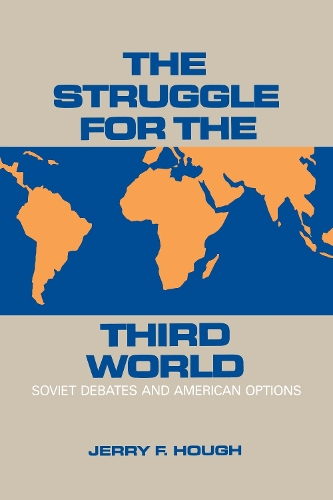
The Struggle for the Third World: Soviet Debates and American Options
(Paperback)
Publishing Details
The Struggle for the Third World: Soviet Debates and American Options
By (Author) Jerry Hough
Bloomsbury Publishing PLC
Brookings Institution
1st February 1986
United States
Classifications
General
Non Fiction
Diplomacy
Development studies
Development economics and emerging economies
327.4701724
Physical Properties
Paperback
304
Width 152mm, Height 229mm
454g
Description
In the last quarter century the Soviet Union and the United States have repeatedly come into conflict in various parts of the third world. During this period the most backward third world countries have sometimes proved susceptible to radical revolution, but the countries well on the way to industrialization have moved away from left-wing economic and political policies. In the longer perspective the West has been winning the struggle for the third world. The changes in those countries have been the subject of intense published debate in the Soviet Uniondebate on Marxist concepts of the stages of history, on theories of economic development and revolutionary strategy, and on foreign policy. Jerry F. Hough explores the breakup of the orthodox Stalinist position on these issues and the evolution of free-swinging discussion about them. He suggests that, paradoxically, many of the old Stalinist ideas retain their strongest hold in the United States, which has not fully recognized its victory in the third world and the importance of the West's great economic power. The United States too often assumes that radical regimes will inevitably follow the Soviet path of development and that the nature of a regime determines the nature of its foreign policy. Because of these misperceptions, Hough argues the United States misses many opportunities in the third world. It emphasizes military power, even to the extent of undermining its crucial economic power, and it fails to offer the face-saving gestures that would permit Soviet retreats. Hough presents a prescription for an American policy better suited to the new realities in the third world and to the changing Soviet attitude toward them.
